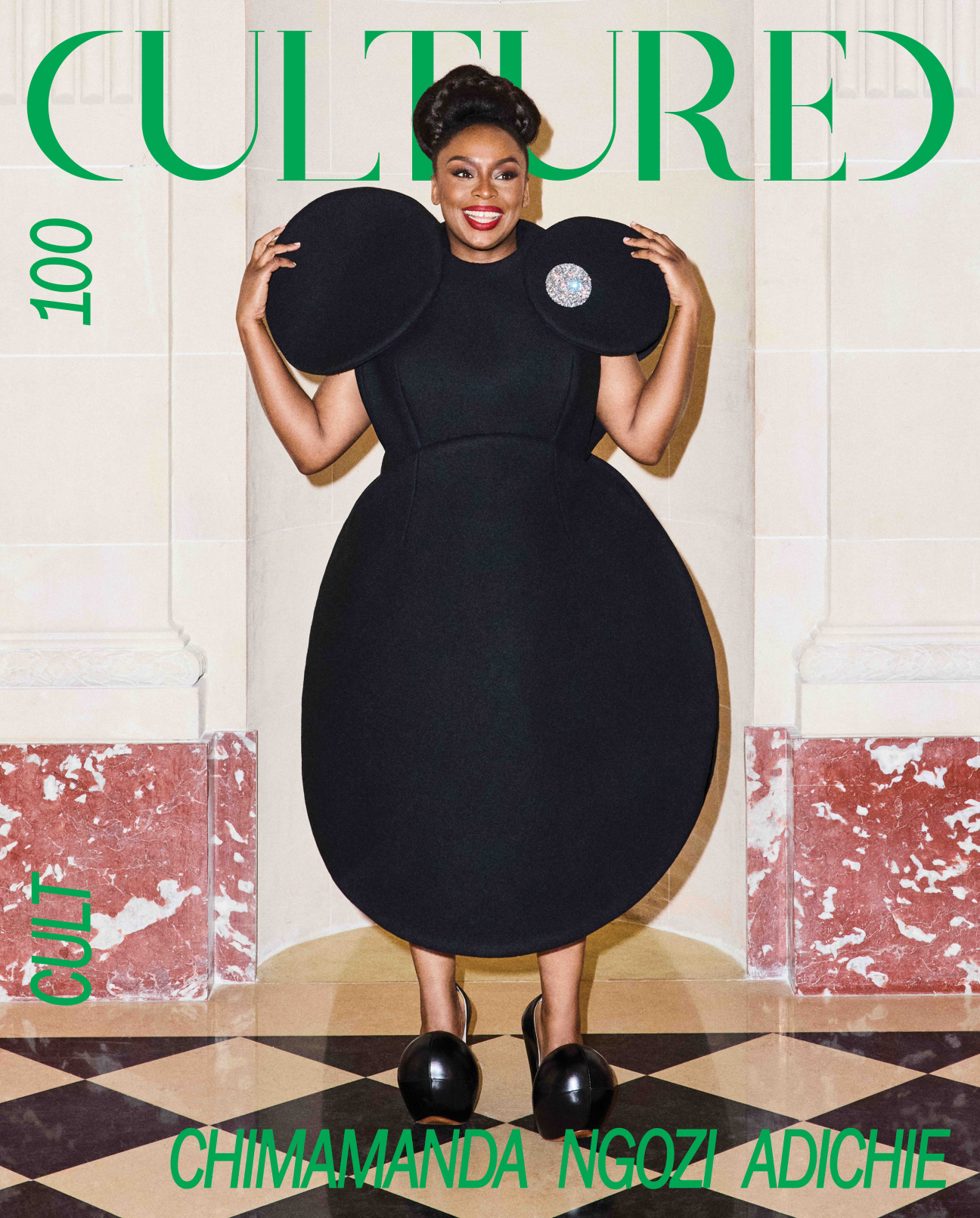
CULTURED’s second annual CULT100 issue spotlights 100 names across five generations who are shaping our culture in real time. Some members of the list are household names; others have been working behind the scenes to make possible the encounters that stop us in our tracks. They are all thinking big, sharing generously, and embodying courage. We hope their work makes you a little braver, too. Order your copy of the CULT100 issue here.
Chimamanda Ngozi Adichie doesn’t like to travel. “I travel through books,” she tells me, “but travel [itself] is not my favorite thing to do.” Nevertheless, the Baltimore-based Nigerian novelist dials into our interview from San Francisco, the latest stop on a book tour that has her ping-ponging from the U.K. to the Pacific Northwest to Northern Europe.
I’d spent much of the preceding weeks making myself a student of Adichie’s repertoire—parsing her literary interests and political views, listening to her speeches, and charting her relationship to a fame that has blossomed over the two decades since the release of her breakout novel, 2006’s Half of a Yellow Sun. I had read that despite the intimacy of her prose, the writer herself is famously private—indeed, at the start of our phone call, her demeanor is clipped, even wary. Her newest novel, she says, “has been a long time in the making.”
Adichie has embodied the dream of American multiculturalism just as readily as she has punctured it. At 47, her reputation has fluctuated from novelist to public intellectual to, in recent years, something of a combative recluse. “If the world were divided into people who need to go out and people who don’t need to go out, I am firmly in the latter group,” she said in 2015.
“My worldview is very much one of faith—even optimism—in the ability of people to find their tribe. Deep-seated alienation is something I’m not particularly interested in.” —Chimamanda Ngozi Adichie
Her literary debut, 2003’s Purple Hibiscus, was followed by the war epic Half of a Yellow Sun; three years later, her TED Talk “The danger of a single story” went viral on still-nascent YouTube. She published two tracts on the fortunes of women, including We Should All Be Feminists, which has been translated into 32 languages.
Through her seismographic differentiation of African cultures by ethnic group and employment status, skeptical surveys of Black Americans, and skewering of academic circles in the American Ivy League, Adichie emerged as one of a handful of African writers bolstered by the romance of “global voices” during the dawn and sunset of the Obama administration. None of her works encapsulate these overarching concerns as efficiently as her 2013 blockbuster novel, Americanah, which chronicles the joys and frustrations of Nigerian émigrés—practically required reading for American youth during that balmy period of cultural polyphony.
This spring’s Dream Count, her return to the novelistic form after 12 years away, taps into many similar themes, detailing the romantic histories of four women whose lives are inter-connected across time and continents: a pair of cousins, a lifelong friend, and a foreign housekeeper.
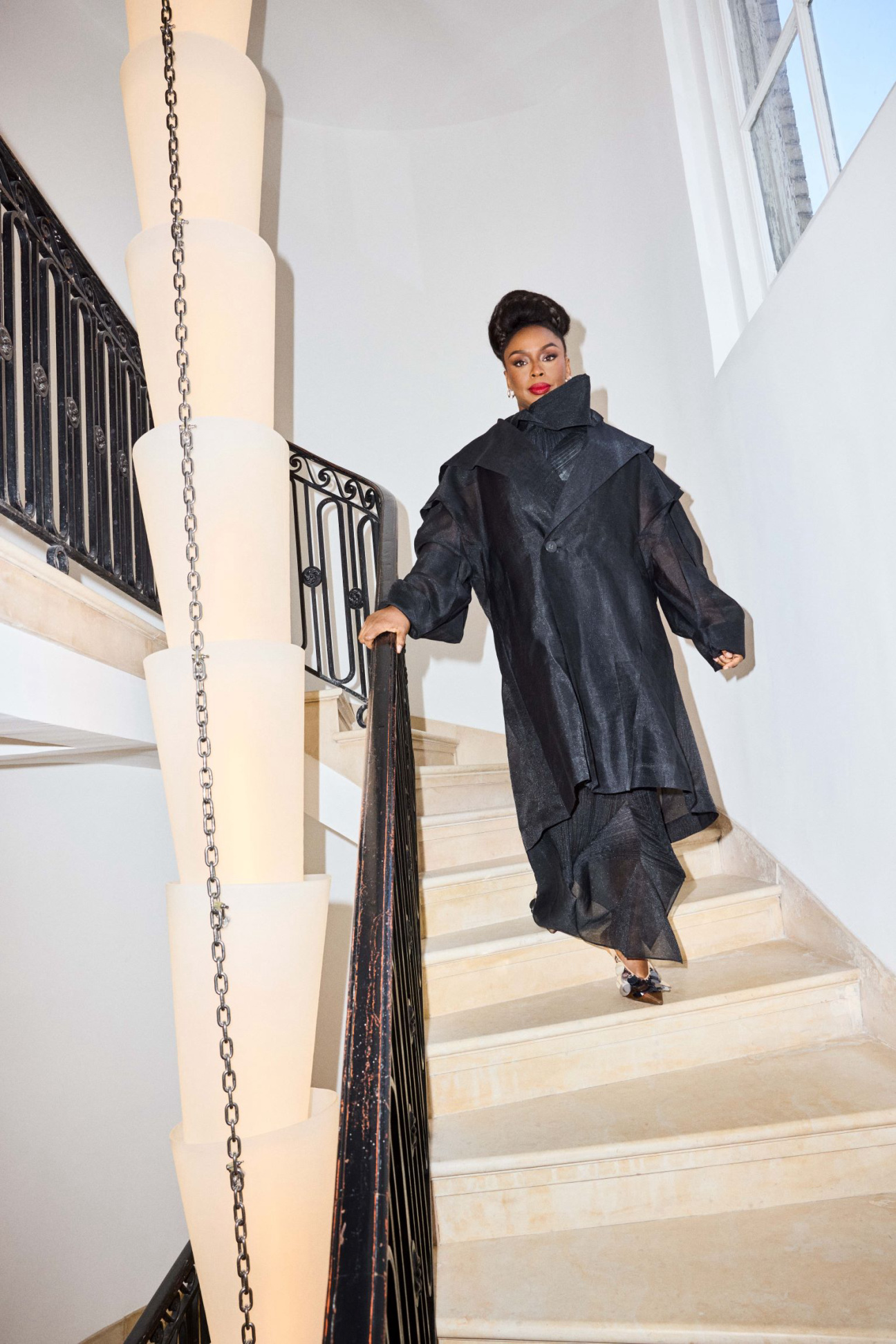
Oscillating between the first and third-person, Adichie draws inspiration from recent international events, dispatching from across the African diaspora: a Guinean community reacting to the NYPD’s killing of 23-year-old immigrant student Amadou Diallo, rising Covid anxiety in Abuja, the effects of pornography on young Igbo men, and the assault of hotel housekeeper Nafissatou Diallo by IMF Chief Dominique Strauss-Kahn. As in many of Adichie’s novels, the women in Dream Count seem isolated—seated among friends at dinner parties and on world-class vacations, they find themselves ill at ease, apart.
"I had felt like a spectator, sated and satisfied, but a spectator still,” says Chiamaka, one of the protagonists in Dream Count. Yet, when I ask about the alienation her female characters face, Adichie is taken aback. “My worldview is very much one of faith—even optimism—in the ability of people to find their tribe," she asserts. "Deep-seated alienation is something I’m not particularly interested in.”
When I ask what she hopes readers will take away from the book, a story full of public humiliations and private disappointments, she responds crisply: “Love.” We share a long pause. “I’m interested in the idea of how much we know other people and how much we know ourselves,” Adichie adds. “It seems to me that to love somebody is to attempt to know them. I am not sure we can ever fully know someone, but the longing is still there.” It was a fitting comment from someone who, before achieving international fame, was thoroughly dissected as a public figure in her native Nigeria. Her words, I find, tend to obscure as much as they reveal.
Adichie owes her meteoric rise in part to her ability to marry the language of liberal feminism with an ethos of universal human rights to achieve a dazzling, globally conscious centrist position. On the role of women at work and home, or taking a husband’s name, one hears the echoes of feminism’s long-forgotten second wave; on the importance of “choice”—of hairstyles, dress, or sex positivity—one hears the familiar mantras of the early 2000s (“Why can’t a smart woman love fashion?” she asked in an essay for Elle).
In 2017, Adichie’s universal feminist bonafides turned sour. During a five-minute promo on Channel 4, an interviewer asked the author about her attitudes around transness. “When people [ask,] ‘Are trans women, women?’ my feeling is that trans women are trans women,” Adichie replied firmly. The aftermath of this statement was protracted and brutal, with the author’s favored platitudes around women’s rights to self-determination ringing hollow. Suddenly, she was at the center of a highly publicized online firestorm, with younger writers—both in Nigeria and the West—taking to Twitter to accuse her of transphobia. She, in turn, accused them of opportunism.
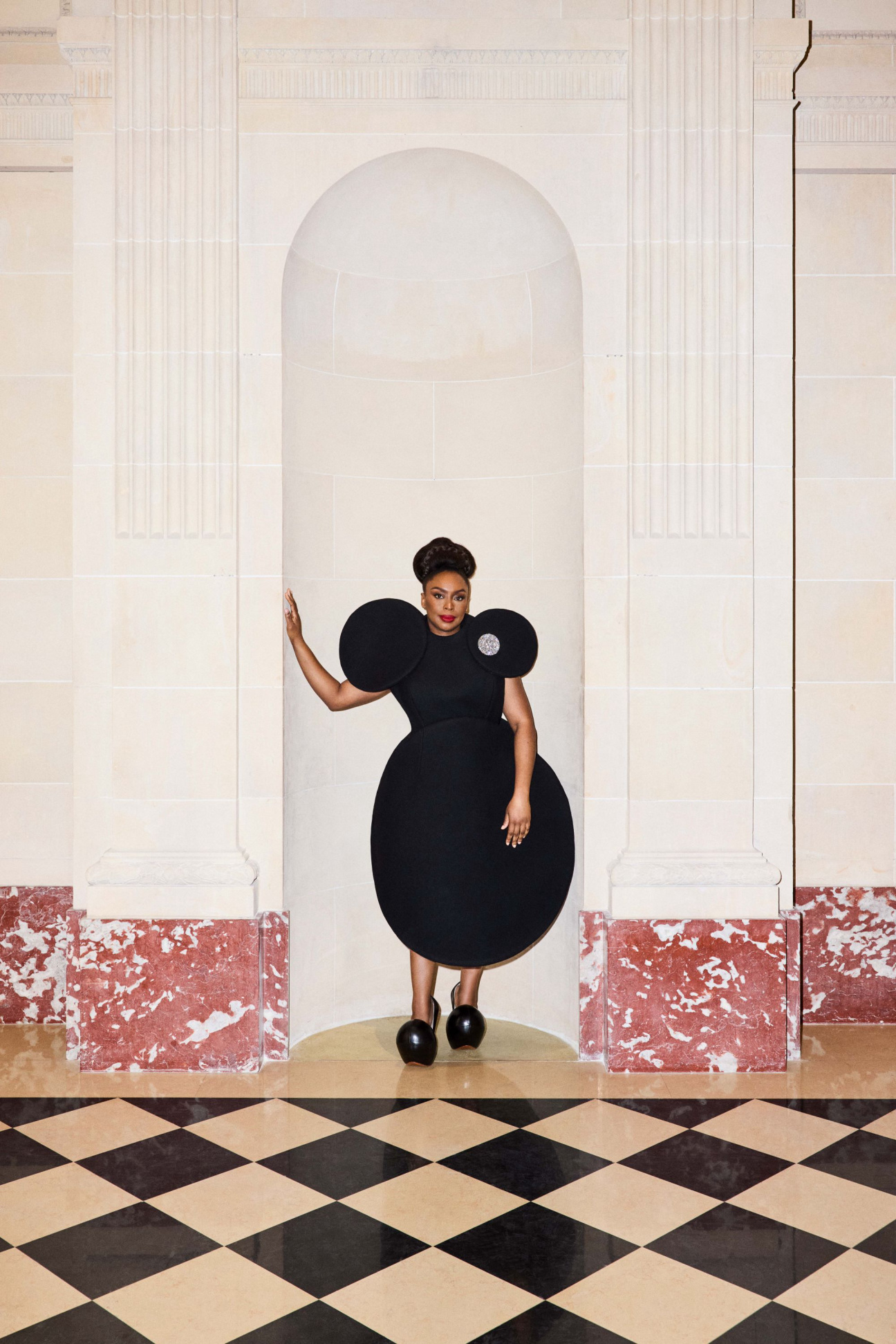
While the row revealed the author’s heterodox politics, it was also, in many ways, an age-old trap: Adichie was certainly not the first high-profile West African artist urged to weigh in on a context-specific hot-button issue in place of a qualified expert from the same region. Her pluralist perspective can also shroud the unique cultural context in which Adichie—an Igbo woman from an academic family in Nigeria—is situated and which has shaped her ideas.
She has repeatedly delineated for her international audiences the ways that gender and patriarchy have shaped her own life, sometimes to convoluted effect. “I don’t feel that I’m the authority on feminism,” she added in a far less-quoted exchange that followed her fateful comment in the same Channel 4 interview.
After the flap, Adichie emerged as an outspoken defender of free speech. “There’s been this incredible suppression,” she tells me. “I feel we’ve lost a lot as a society. People have not told the stories they want to tell in the way they want to tell them because they’re terrified of backlash.” This sentiment is borne out in Adichie’s novels, which have long taken aim at the frivolity of Western speech: its overconfidence, sanctimony, surfeit of politeness, and fuzzy ideas.
“I feel that fiction is our last frontier for honesty.” —Chimamanda Ngozi Adichie
While Adichie’s readers have long adored her withering, pithy effacements on the page, their real-world counterparts (plus Adichie’s knack for tossing off razor-sharp one-liners) have granted her a deep staying power online and in culture writ large. In another viral exchange with French journalist Caroline Broué in 2018, Adichie was asked, “Do people read your books in Nigeria? Are there bookshops in Nigeria?” Broué had intended irony—aping international audiences’ ignorance of the breadth of Adichie’s fan base, her family’s academic credentials, or even the fact that the climax of Adichie’s bestselling novel takes place in a Lagos bookstore—but her meaning was missed. “I think in general,” Adichie replied coolly, “that France doesn’t seem to realize that it is no longer an 18th-century warpower.” Adichie later acknowledged the miscommunication.
But live by the sword, die by the sword. It was “Flawless,” the Beyoncé song that samples Adichie’s 2012 TEDx talk—not the writer’s fine-grained prose—that catapulted her into the dubious echelons of Famous Feminists (a status that has made her cringe), and a frenzy of tweets and blog posts—not her manifestos on gender politics or patriarchy—that brought her reputational damage. The social media age, with all its vitriol, brevity, and inexpertise, makes the idea of the novelist as public intellectual feel borderline irresponsible.
Adichie doesn’t concern herself with these vagaries. Instead, she holds fast to her faith in literature’s capacity to air out society’s festering conflicts. “I feel that fiction is our last frontier for honesty,” she reasons. “We come to literature to find something that we can’t find in journalism or in politics. There’s depth there.”
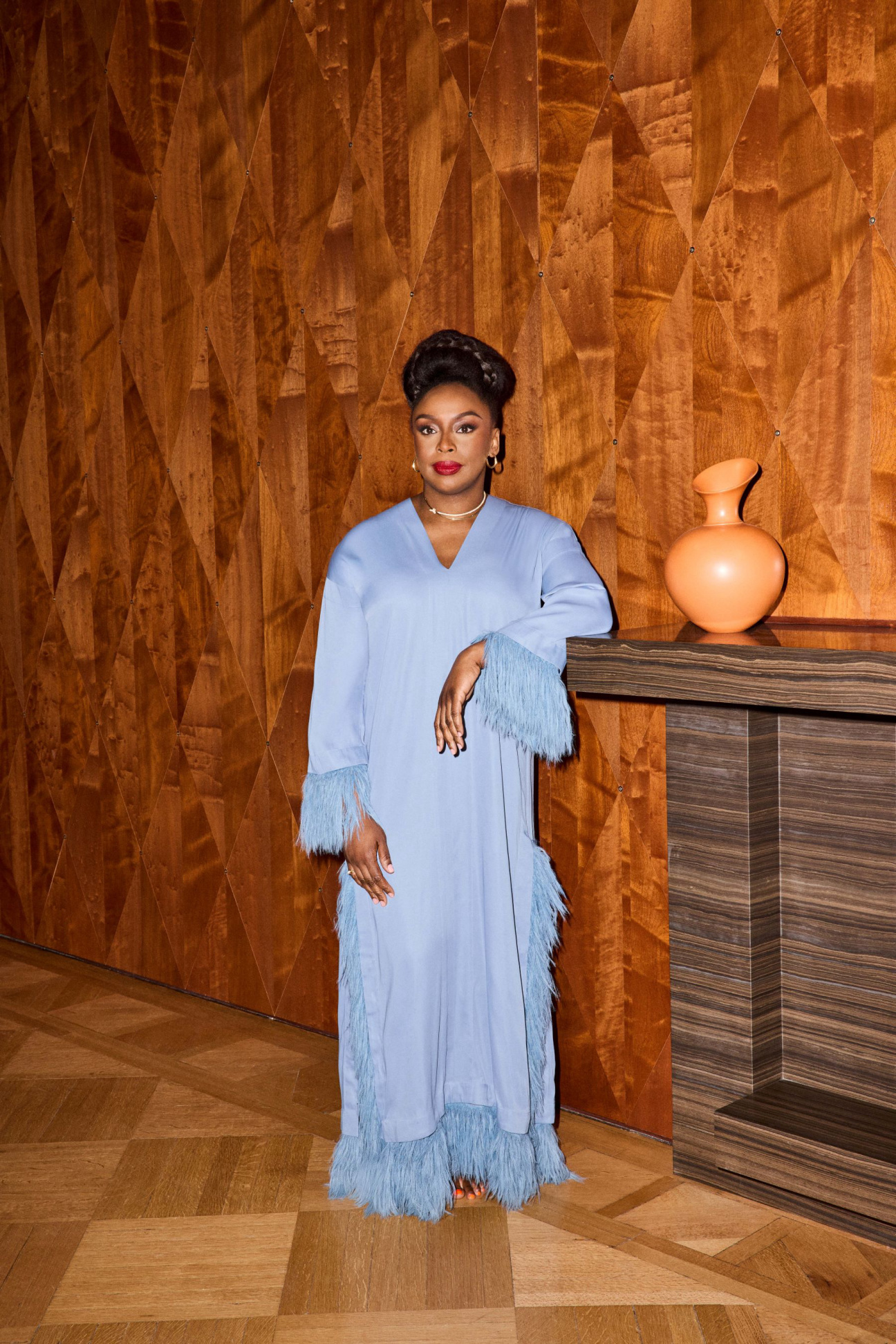
THE CULT100 QUESTIONNAIRE
What keeps you up at night?
Thinking about all of the disasters that could happen in the world.
If you could attribute your success to a single quality of yours, what would it be?
My determination.
What’s one book, work of art, or film that got you through an important moment in your life?
A wonderful collection of poems called Faster Than Light by Marilyn Nelson. When I was working on my novel, I went through what people like to call writer’s block, but I’m too superstitious to use that expression. So, I just went through a patch, and I started reading her poetry, and it brought my words back. It made it possible for me to get back into my creative zone.
What’s something people get wrong about you?
People think that, because I have the liberal feminist title attached to me, I must be sort of doctrinaire and fun-less. I’m actually very curious about every opinion. I’m open to hearing what people think, even if they disagree with me.
Hair by Cody Ainey
Makeup by Ernest Robinson
Production by Dionne Cochrane
Tailoring by Chloë Boxer
Styling Assistance by Keanu Mohammad and Dylan Keoni
Production Assistance by Brittany Thompson and Kaylah Dawkins
Location: Salon 94

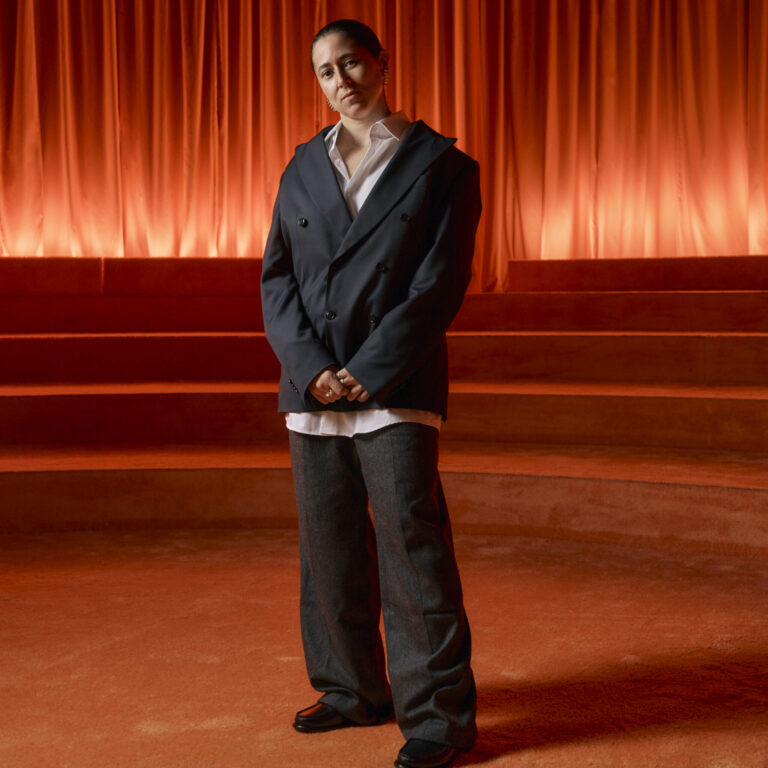
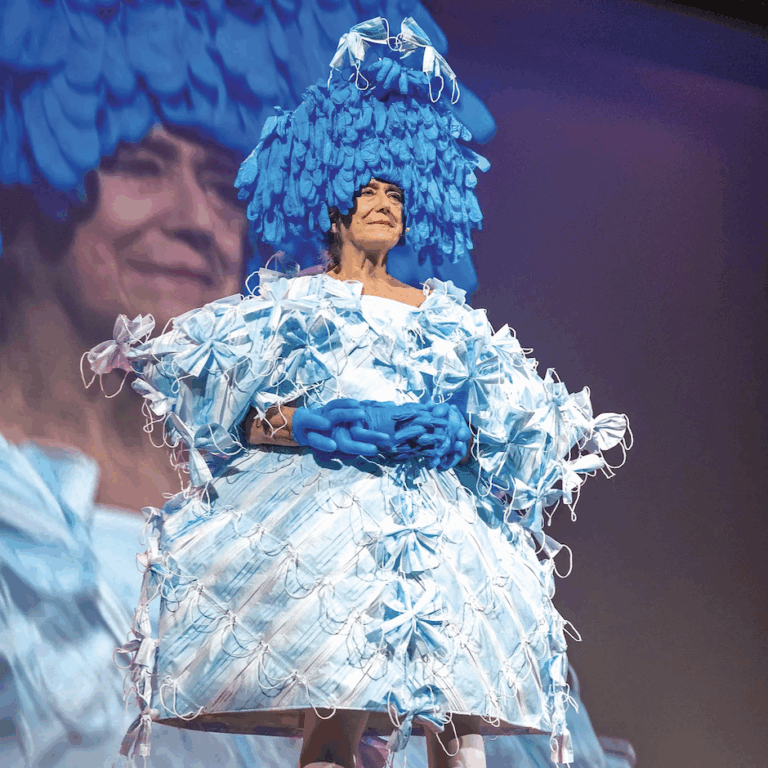
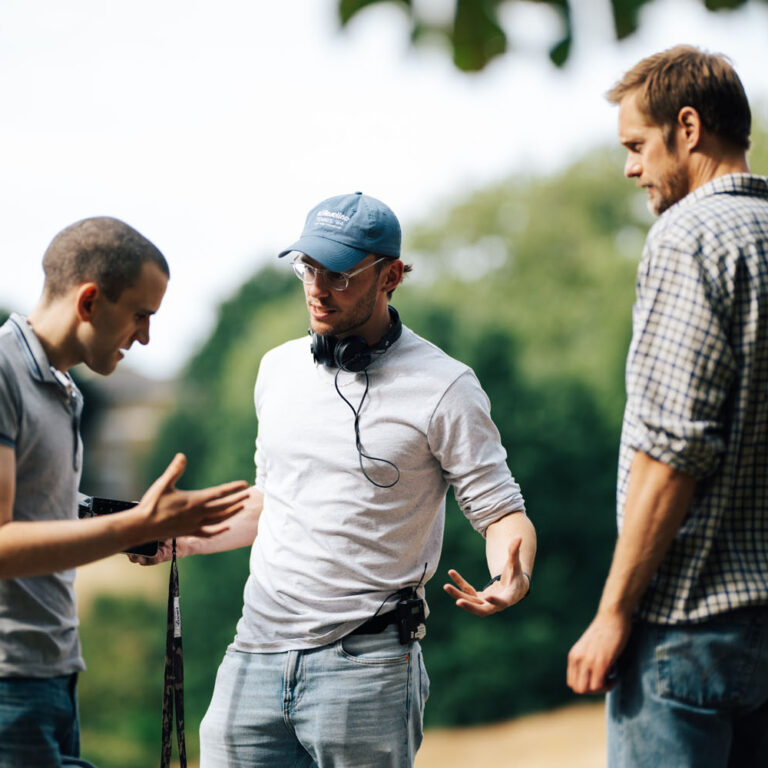
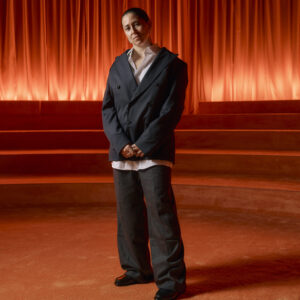
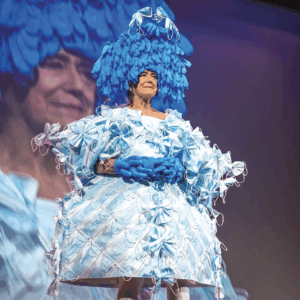




 in your life?
in your life?

